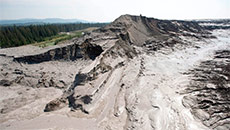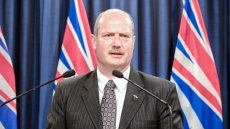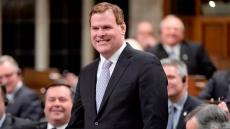TORONTO — TransCanada's chief executive says suggestions that the environmental impacts of the Keystone XL pipeline be revisited in light of lower crude prices is merely a tactic to delay the project.
Russ Girling says demand for oil will continue to grow over the coming years, and that volatile crude prices do not mitigate the need for pipelines to transport that oil.
The U.S. Environmental Protection Agency has suggested that in light of the recent drop in oil prices the State Department revisit how big of a toll the Keystone XL pipeline would have on global warming.
TransCanada's (TSX:TRP) US$8-billion project would allow 830,000 barrels per day of crude to flow from Alberta's oilsands to refineries on the U.S. Gulf Coast.
Pipeline supporters have argued that approving the project would not boost greenhouse gas emissions because the crude would get to market regardless — if not by pipeline then by rail.
But the EPA says in a letter that the slide in crude prices has created tough economic conditions for oil producers and that in absence of a pipeline, oil production — and emissions — will likely be reduced. That means that by extension, a pipeline would lead to higher emissions.
While Keystone continues to be mired in delays, TransCanada has been pushing forward its $12-billion Energy East pipeline, which would span 4,500 kilometres and carry more than one million barrels of crude per day from Alberta to refineries and export terminals in Quebec and New Brunswick.
However, part of the plan, which involves building an export terminal along the St. Lawrence River in Quebec, has been put on ice over concerns about potential impacts on beluga whales.





